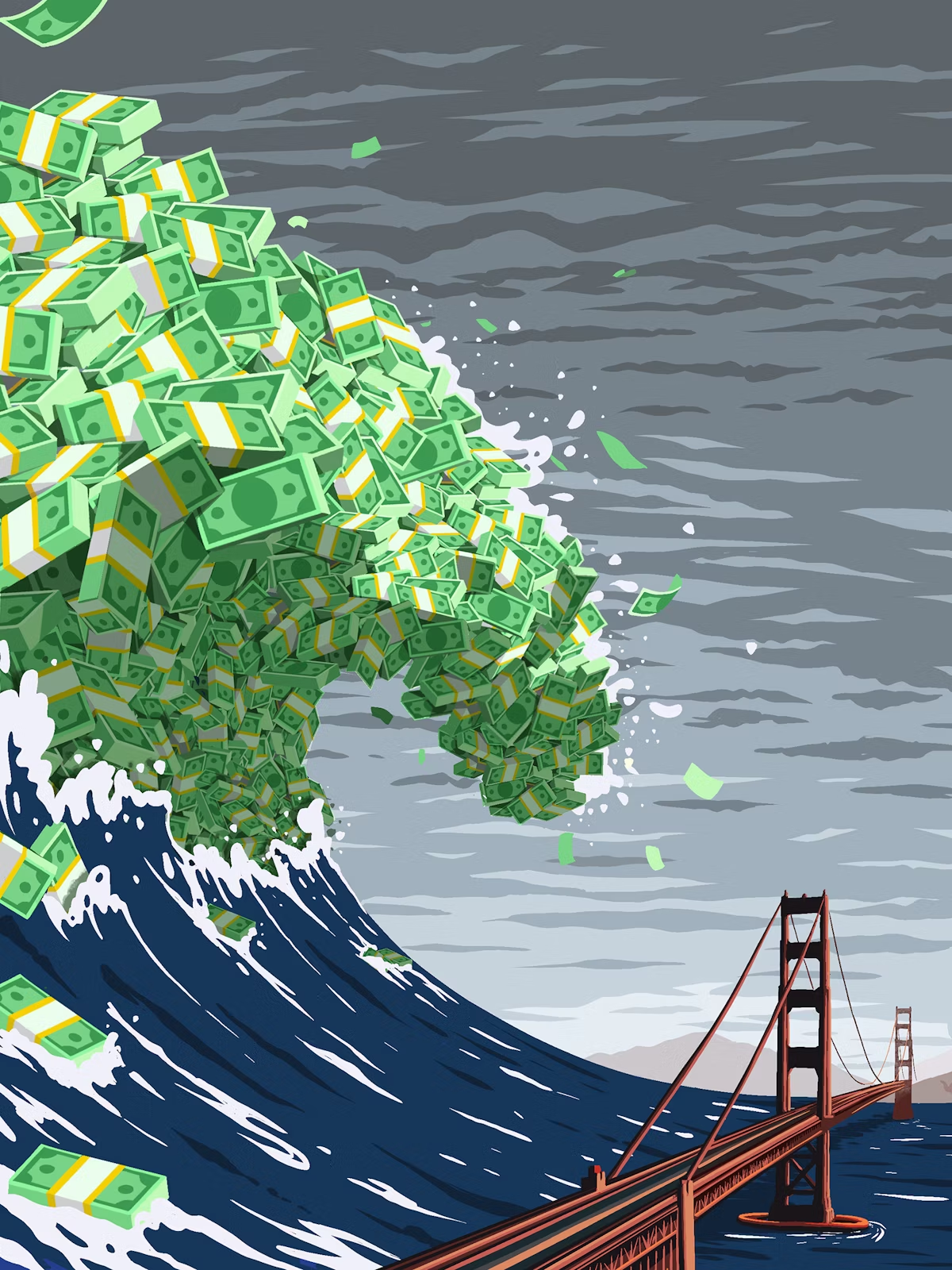The city is the epicenter of an anti-progressive movement—financed by the ultrawealthy—that aims to blur political lines and centralize power for the long term. For some, their ambitions don’t stop there.

This article appears in full at The New Republic
“There’s a hole. Smack in the middle.” Mark Dietrich pointed at a brown garage door across the street. Someone has taken a hand drill to it, just above eye level. “They reach through with a wire or a coat hanger, and then there’s a little red handle. As soon you pull that red handle, the garage [door] goes right up.”
Dietrich is an analytics executive and San Francisco anti-crime activist, with a bike rider’s build and a close-cropped business haircut. We were walking around his Inner Richmond neighborhood, a lovely place with modest homes that cost millions of dollars. It does not look like it has a crime problem, but appearances can be deceiving. “I don’t think there’s a business here that hasn’t been broken into in the past two or three years,” he told me. “Maybe the bank?”
If you’ve paid attention to the media in the last couple of years, you’ve probably read an article that begins a lot like this one. It probably went on to inform you that San Francisco is dying horribly, the once-great metropolis destroyed by progressive policy madness. Tent encampments fruit like mushrooms upon its rotting corpse, and the addicts who crouch within them purchase fentanyl at what the Hoover Institution described as “an opioid version of Costco.” The streets are paved with needles and human excrement, while roving gangs of criminals steal everything in sight. The Washington Examiner compared it unfavorably to Planet of the Apes. The Atlantic called it “a failed city.” In 2023, Michael Moritz, a former journalist turned billionaire venture capitalist, wrote a guest editorial for The New York Times entitled “Even Democrats Like Me Are Fed Up With San Francisco.”
“SF has a drug problem. SF has a cleanliness problem. SF has an education problem. SF has an anti-tech problem,” venture capitalist Garry Tan said in a taped speech entitled “Fixing San Francisco” at 2023’s Network State Conference. “SF has a fundamentally political problem. So the question is: How do we solve it?”
Tan, Moritz, and others involved in the city’s self-described moderate movement believe they have an answer. They have founded or sponsored groups with generically liberal-sounding names like Grow SF (Tan), TogetherSF (Moritz), and Neighbors for a Better San Francisco and have poured millions into local politics to advance solutions they often describe as “common sense.” Though the real estate titans, conservative philanthropists, and tech bros who fund these projects don’t see eye to eye on everything, they share a common and often obfuscated goal: to create a centralized political machine powerful enough to transform the city into a regulation-free, heavily policed paradise for the wealthy.
Twenty years ago, many people recognized these ideas as reactionary. After two consecutive election cycles in which Democrats primarily ran on a platform of not being Donald Trump, however, ideas and governing philosophies have taken a back seat to questions of loyalty. The tech elite in San Francisco aim to redraw political lines so that conservatives can feel at home on both sides, and progressives are boxed out of politics as dangerous communist radicals. But progressives aren’t the actual radicals in this story. That moniker belongs to some key players at the top of this “commonsense” movement—those who yearn to replace nation-states with anarcho-capitalist “startup societies” ruled by philosopher-king CEOs. The impracticality of such pipe dreams does not stop them from pouring resources into the project, and the results are painfully real.
Read the rest at The New Republic